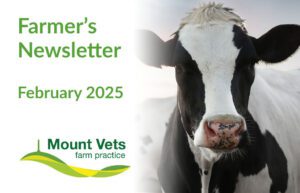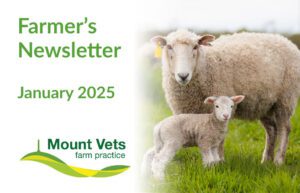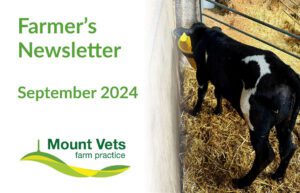January 2024
Here is the latest from our farm team at Mount Vets. If you would like any further advice or would like us to cover something in the next newsletter, please call us on 01823 662286 or contact us here.
We want to hear your feedback… Leave us a review!
We value your feedback and comments and would appreciate if you could take the time to leave us a review! Please follow the link to share your thoughts.
Pneumonia Diagnosis
As the weather this winter has been so horrible, we have seen an increasing amount of pneumonia in young calves. This obviously can be very frustrating to deal with and can be a big contributor to calf mortality.
Diagnosing the cause of a pneumonia outbreak can be very helpful in deciding how best to control the disease going forward. We have multiple different vaccines to choose from so finding out which bugs are present is important. Unfortunately, this can be challenging sometimes.
Antibodies take time to develop, so this type of testing may be an unreliable method in an acute outbreak. The presence of maternally derived antibodies makes this even more challenging. Bacterial culture can be useful, especially from post-mortem samples, but a lot of calves have been treated with antibiotics by the time we get to see them. This again makes bacterial culture results slightly unreliable.
Several labs now offer a respiratory testing package that can be done on nasopharyngeal swabs. These are extra-long swabs that can be introduced through the nose of a calf and will reach the back of their throat where we are more likely to find the bugs present.
Once we have identified the bugs that are present, we can then choose the most appropriate vaccine to use to provide the greatest protection for the calves. Vaccines are a very useful tool in controlling pneumonia in calves but are only one piece of the puzzle. Building design, feeding regimes and overall calf health (colostrum management especially) are also very important.
Currently, we have some funding available to subsidise some of the lab fees involved in this testing. So, the next time you are struggling with an outbreak of pneumonia (or if you are dealing with one now) and you want to get to the root cause, give us a ring at the practice and we will be more than willing to help.
Upcoming courses
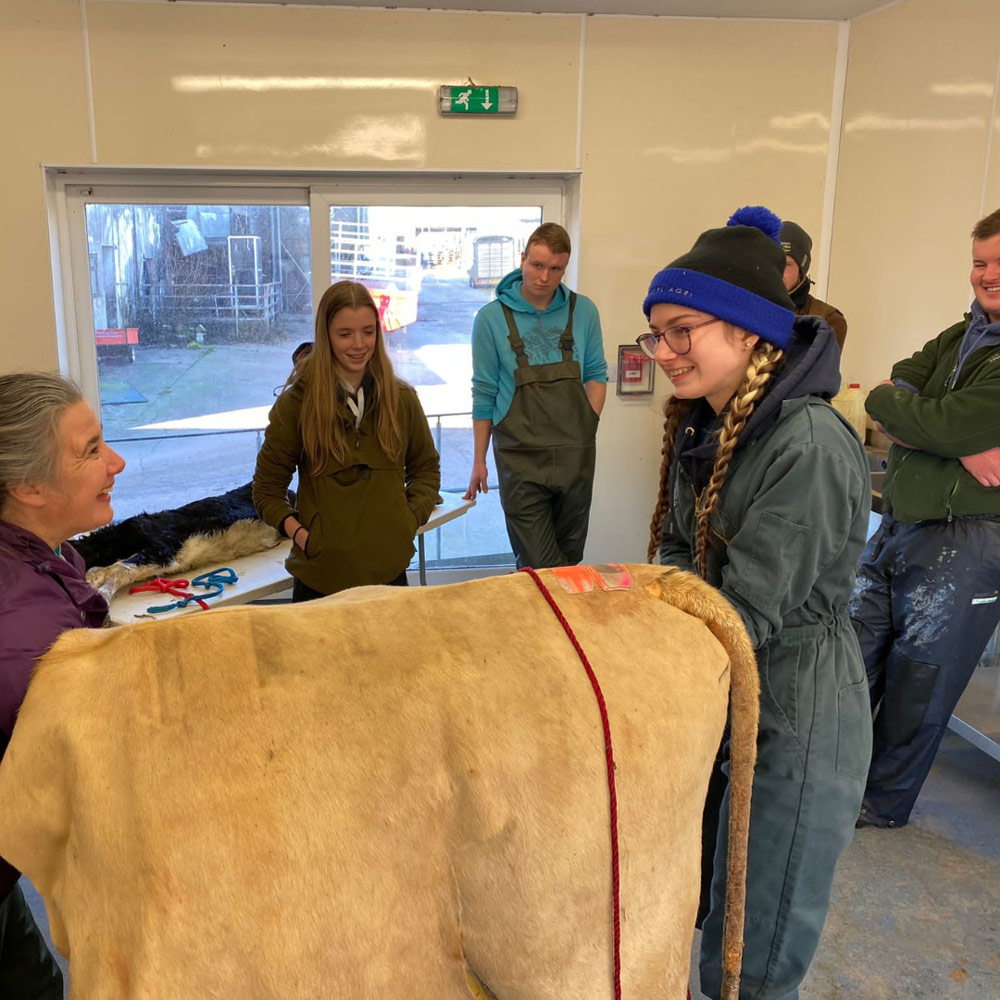
Be a Better Herdsperson
We are running our ‘Be a Better Herdsperson’ Course again this month. The attendees have enjoyed their first few modules and have learnt a lot so far. The course is very hands-on and sets out to increase the understanding of the cow and her environment. If you are a young farmer or farmworker with a growing interest in dairy cows, this farm herdsperson course is for you! If you would like more information or would like to be added to our waitlist for our next course, please contact us.
Please ring the practice to book your place on any of our courses on 01823 662286 or email farm@mountvets.com
Ovine Pulmonary Adenocarcinoma
We recently had an interesting couple of post-mortems. Initially, the presenting complaint in the 20 head pedigree flock was an intermittent cough in some of the ewes and lambs. Given the history and response to antibiotic and anti-inflammatory treatment, a tentative diagnosis of Mycoplasma ovipneumoniae was made –a common pneumonia bug of sheep. Definitive diagnosis of this is not possible in the live animal, it can only be made by examination of microscopic sections of lung tissue.
Unfortunately, some weeks later, the strongest 6-month-old lamb (it’s always the best ones!) passed away after apparent recovery from initial treatment. It was sent to Starcross for post-mortem, to confirm suspicions. Sections of lung did have pathological features of Mycoplasma but there was an additional disease process taking place simultaneously: Ovine Pulmonary Adenocarcinoma (OPA), otherwise known as Jaagsiekte. It is likely the combination of these two agents was the reason for such a well grown animal’s death. The normal age of affected sheep is 2-4 years of age (very rarely are lambs affected) but there is a chance of affected ewes passing it to their offspring, so the dam was therefore under careful observation.
Transmission can occur through inhalation, contact with respiratory secretions or via milk/colostrum. Once lung cells are infected, this causes the cells to mutate into cancerous tumours, which in turn produce more virus which is excreted via respiratory route. Once cases are clinically symptomatic, they can shed high levels of virus which then starts the cycle again. Sadly, there is no cure; it is inevitably fatal.
Clinical signs include weight loss, increased respiratory effort, inability to keep up with the flock when groups are moved and occasionally watery discharge from the nose. Frustratingly again, this is another disease which can only truly be diagnosed at post-mortem. There are a couple of techniques which can help support the diagnosis.
Firstly, thoracic ultrasound scanning can be of some use to try and identify solidified areas of lung. This is by no means 100% accurate. The entirety of the lungs cannot be examined so some cases may be missed, but also there are diseases which can cause the lungs to loose air spaces other than OPA. Scanning should be repeated at least annually to try and monitor progression within a flock.
The other technique which can be used and is diagnostic for OPA is a ‘wheelbarrow test’. This involves raising the hindlimbs of the sheep into a handstand position, and in an advanced OPA case copious clear fluid will pour out from the lungs through the nose and mouth. It is worth noting this is extremely distressing for the sheep, and if a positive result is seen then euthanasia should be swiftly carried out, as the sheep will be in severe respiratory distress after this manoeuvre.
Three months later, the dam of the above lamb had started to breathe more heavily and showed signs of weight loss. Despite treatment she was progressively getting worse and so was brought into the practice for examination. Pip scanned the sheep and could see some lung consolidation, and the wheelbarrow test was positive with approximately 2 litres of fluid pouring from her nose. She was swiftly euthanised via lethal injection and a post-mortem was undertaken. It was immediately apparent on entry to the chest that the lungs were indeed heavily affect with OPA tumours, approximately 50% of the lung volume. In the images, the tumours are the pale grey areas, they were very firm and heavy relative to normal lung tissue. The extensive nature of her condition would
Meet the Team!
We have an experienced & friendly team here at Mount Vets. You might already recognise a few faces but over the next few months we will reintroduce you to some of our excellent team. To read more and see more of the faces of Mount Vets visit our team page, and be sure to follow us on Instagram and Facebook.
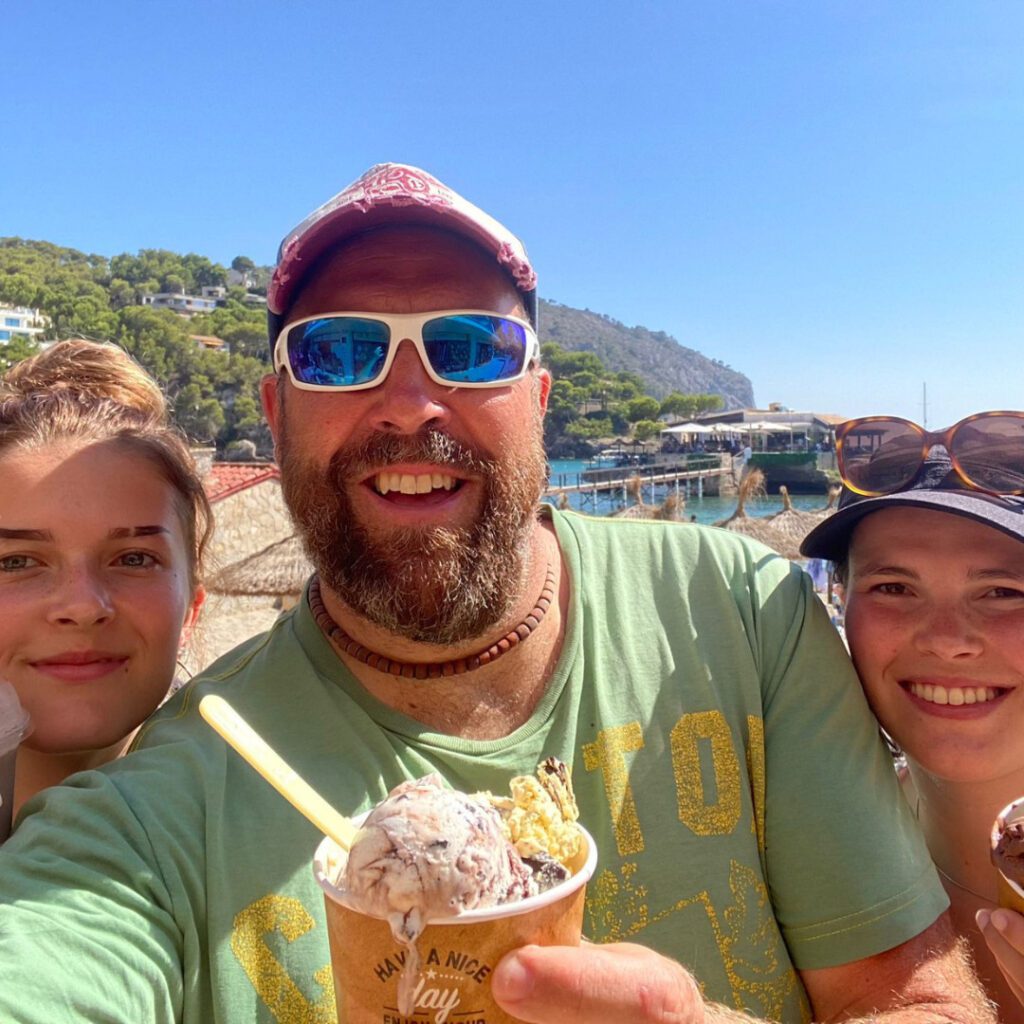
Piers Pepperell
Director
Many of you will already know our Mount Vets Director Piers; but did you know he has appeared on tv show Blind Date with Cilla Black?
Piers loves to spend a free day with his two daughters and three dogs, surfing on the North Devon Coast.
His favourite vet call out was when he was called into the waiting room and unknown to him at the time, but he then met his wife to be. She had brought in her eight baby bunny rabbits, which led on naturally to a 10-minute chat about pig wormers and her asking Piers out on a date.
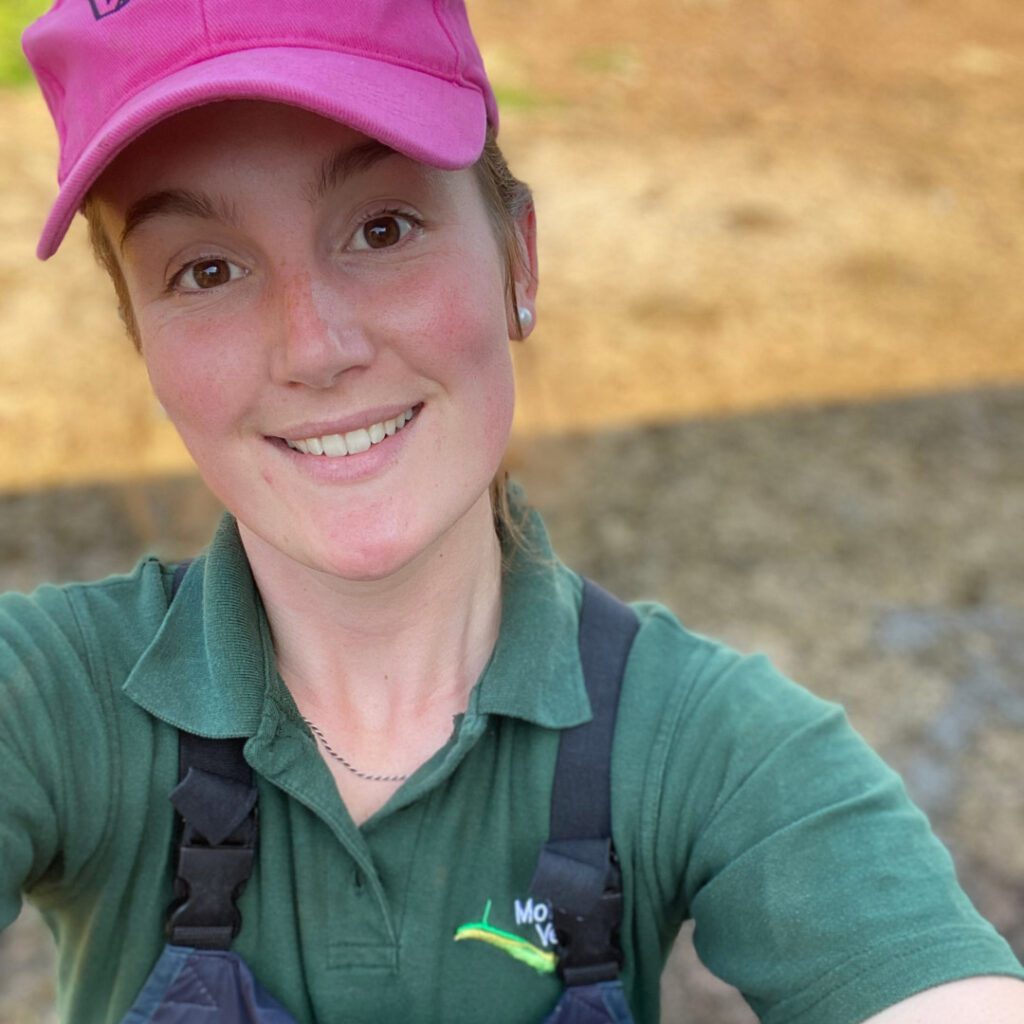
Pip White
Vet
Pip is one of our large animal vets. If you’ve met her, you will probably know how much she loves her cows. So much so, that she loves to spend her free time at home with her cows! That, or in the showring showing them. 🐮
Pip graduated as top student in her year from the University of Surrey.
Her favourite song is Mr Brightside by the Killers.
Have a question about any of the topics covered in this newsletter?
If you need any assistance with the topics covered in this newsletter, please do not hesitate to get in touch with our experienced farm vets who will be able to help. Call 01823 662286, or contact us here.
